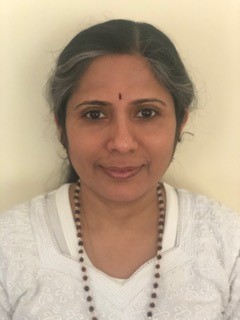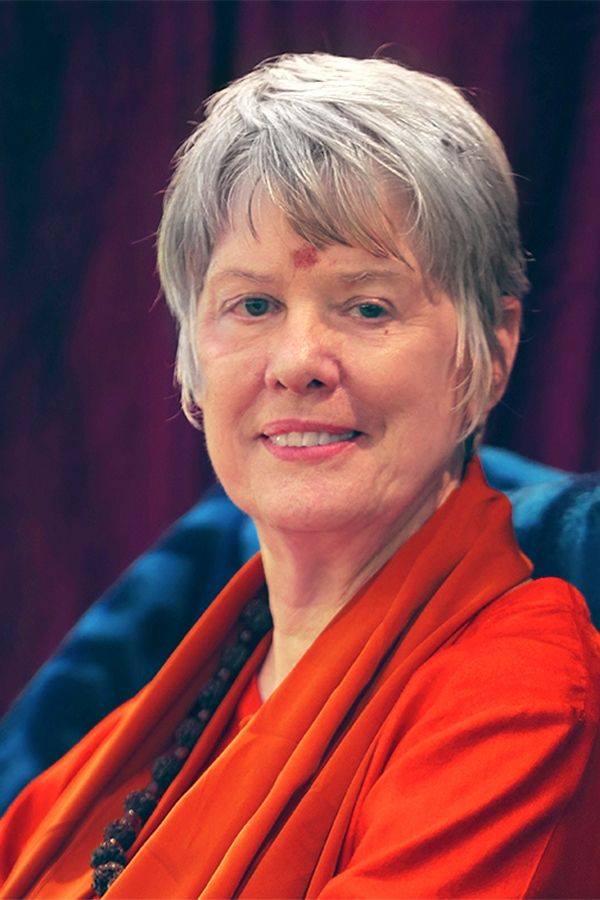By Nirooshitha Sethuram
As the death of the demon Bakasura spread like wildfire in Ekachakra and the surrounding areas, Kunti decided it was time for them to leave Ekachakra. The thought of moving to a new place occurred due to her concern that Duryodhana and the Kauravas might feel suspicious about Bakasura’s death. If the Pandavas were to continue to live unnoticed, it was necessary to move. So they decided to go towards the Kingdom of Panchala.
There was also another reason for Kunti to choose Panchala. She overheard the news of the svayamvara, a groom selection contest for Draupadi, the daughter of the Panchala King Drupada. Deep down she knew it was an event her sons wouldn’t want to miss. After parting from the brahmin family that they had been living with for so long, they left Ekachakra and headed towards the Kingdom of Panchala.
By nightfall. they had reached the bank of the river Ganga. After the long journey, Arjuna was really thirsty and thus delighted to hear the flow of the river. As Arjuna was leading them through the darkness towards the river to quench his thirst, he suddenly saw a chariot advancing towards them. The warrior in the chariot challenged them, saying not to go near the river. He was the Angaraparana also known as Chitraratha, a chief of gandharvas, a heavenly being. He had come with his wives to bathe in the river and he didn’t want the brahmin beggars to enter the water at the same time.
Arjuna could not remain silent. He challenged back saying, “The Ganga is the most sacred river. She doesn’t belong to any one person. Anyone should be able to come to Mother Ganga at any time.” The gandharva chief was furious, for a mere human had insulted him in this way. He thundered at Arjuna, “You perhaps don’t know who I am, or my valor and physical might. The forest in the vicinity of this river belongs to me. Not just humans, even Gods and other heavenly beings dare not set foot in my territory. You better turn around with your clan and save your lives before getting crushed by me.”
This was enough to fuel Arjuna’s anger. He shouted back at him saying, “Is it worthy of a heavenly being to indulge in such false pride? And without knowing someone’s might, isn’t it foolishness to start a fight? I’m sure you have never measured arms with a true warrior so far, otherwise your language would not have been so irresponsible. You may have been successful frightening the weak, but now that you challenged me, I am all in to show you what I’ve got.”
Angaraparana drew out his sword and attacked Arjuna. And in turn, Arjuna with the burning torch in hand attacked Angaraparana. The mighty Arjuna brushed his attack aside magnificently, using the burning torch he had in his hand. He then chanted an incantation on the torch and aimed it at Angaraparana, using it as a weapon. The torchlight set fire to Angaraparana’s chariot, burning it and forcing him to jump down from it. While doing so he fell down and became senseless. Arjuna jumped in at once and saved him from the fire, dragging him to Yudhishthira, the elder Pandava.
The wives of Angaraparana rushed out of the river and ran to Yudhishthira, begging mercy for their husband. They pleaded with Yudhishthira to spare his life. Yudhishthira kindly said, “It is against our values to kill a person who has been already defeated and insulted in the very presence of his wives. So, don’t worry, we will not harm him as he was punished already for his actions.”
Angaraparana regained consciousness. Seeing his wives standing before Yudhishthira begging to save his life, he felt highly ashamed. Bowing his head down Angaraparana expressed his gratitude to the Pandavas. He requested them to accept his humble gift in return for sparing his life. He gifted them the knowledge of the art of creating illusions in war. This science is called chakshushi. This heavenly art named chakshushi enables one to see anything at any time at any place in the three worlds merely through the earthly eyes. He also gifted a thousand swift horses of the gandharvas. These horses can put on any desired color and can move with any speed desired by their master. They will never grow old nor will their speed ever slow down.
Yudhishthira gladly said that he will accept both gifts, but as a token of friendship, rather than a gift for sparing his life. Yudhishthira also said that they would like Angaraparana to keep the horses with him until the Pandavas required them. Thus, they became close friends from that time onwards. After quenching their thirst, Yudhishthira along with his mother and brothers continued their journey towards the kingdom of Panchala.
As the preparations for Draupadi’s svayamvara started, guests from nearby cities and kingdoms started to flock towards Panchala. Pandavas joined in with some of the brahmins who were going. After days of travel by foot, at last they arrived at the beautiful city. The whole of Panchala was celebrating the svayamvara of their lovely princess Draupadi, the girl born from the sacred fire.
Due to wanting revenge against Drona, Drupada, the King of Panchala, had performed Putrakameshti Yajna to produce a son to avenge him. After admiring Arjuna’s might, Drupada also wanted a daughter who could marry Arjuna. This would also give him an advantage to lessen enmity against Drona because of Arjuna being his favorite student. Even if there was a war, Arjuna would be always on Drupada’s side, if Arjuna was married to Drona’s daughter.
At the successful completion of the Yajna, from the fire of the Yajna, the twins Dhrishtadyumna and Draupadi emerged. Dhrishtadyumna was glowing like a flame; his looks spoke of his valor, great warriorship and glory. A divine voice spoke from the heavens, saying, “Here is the divine son who is born for you to avenge your insult done by Dronacharya.” All those present at the Yajna were very pleased to hear the divine voice.
A beautiful dark-skinned maiden also emerged out of the sacred fire. She had captivating looks and lovely long hair that gave out a sweet fragrance. King Drupada was delighted to see his children who were born from the sacred fire. He was so grateful to be gifted with two divine children, a son and a daughter. The daughter whom he named Krishnaa, though later on she came to be popularly known as Draupadi. She was also called Panchali, being the favorite princess of the kingdom Panchala. It was her svayamvara drawing all the attention, including bringing the Pandavas there.
The Pandavas ended up staying in a potter’s home. They carried on their disguise as brahmins as they went around the city admiring its grandeur. They saw the special accommodations built for the kings, princes and guests coming from all corners of the world. And they enjoyed all the shows and entertainment happening through the day and night. But wherever they went, all they heard was people talking about the flaming beauty of their princess, her charm and divine qualities.
Krishna arrived in Panchala, having accepted Drupada’s invitation for the svayamvara. While home in Dwaraka, Krishna had already received Uddhava’s report on the situation with the Pandavas. Knowing that they were alive and safe, he was the one who arranged the next steps to follow, even without the Pandavas knowing. It was per Krishna’s request that Vyasa advised the Pandavas to go to Ekachakra and suggested they disguise themselves as brahmins. In fact, the whole swayamvara was happening due to the advice Drupada had gotten from Krishna in his previous visit to Panchala.
Krishna also suggested to arrange a challenging contest for the suitors, so the winner would have Draupadi’s hand in marriage. The challenge arranged was very difficult to achieve. A pole was erected in the court, over which a wooden fish was fixed on a revolving wheel. A pan of water was kept at the bottom of the pole. Anyone who could shoot an arrow through the eye of the revolving fish, by looking at the reflection in the water, would be garlanded by Draupadi.
On the day of the svayamvara, the venue was filled with kings and princes. The Pandavas took their seats among the brahmins. The gathering consisted of princes from many kingdoms including the Kauravas, Karna, Shakuni, Drona’s son Ashwatthama, Shishupala, Jarasandha of Magadha and many others. Krishna and Balarama were seated much closer to King Drupada.
Dhrishtadyumna, the son of Drupada, opened the proceedings by escorting his sister to the court. Draupadi gracefully walked with her brother into the venue. She was tall and dark with gleaming eyes and long black locks. She was truly dazzling in her finery, looking like a goddess. At once, all eyes were turned to her. The kings and the princes stared at her stunning beauty. As soon as she entered the court she paid obeisance to the sages, her kula guru, her father, Krishna & Balarama and all the elders before taking her seat.
Dhrishtadyumna, as the master of the ceremony, addressed the guests. He announced the rules of the swayamvara, “Whosoever can bend the bow and pierce the eye of the fish hanging above, by looking at its image in the water, may marry my beloved sister, Draupadi.” Then he requested the suitors to come forward to take part in the swayamvara.
More to come…









